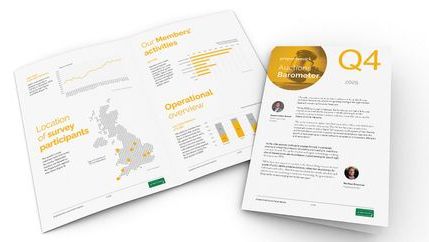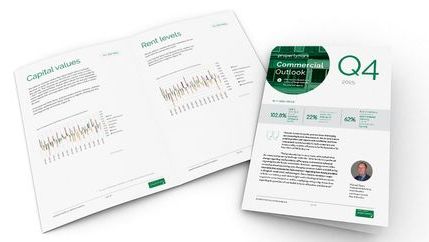Prepare your business for employment law changes coming in 2026
Reforms coming into force during 2026, following the Employment Rights Act 2025, will affect recruitment, staff management, and workplace policies across the UK, including in property agencies. With many firms employing a mix of negotiators, property managers, administrative staff, and apprentices, understanding the changes early will help agencies remain compliant and continue to operate effectively.
Chancellor focuses on economic stability in Spring Statement
Whilst nothing significant was delivered defining housing policy, the statement set the tone for future decisions. Yet, without sustained, targeted support for housing, the underlying pressures in the property market will remain. Transactions depend on confidence, investment depends on stability, and supply depends on a coherent long-term strategy.
Regulation of agents must be part of the solution to issues with Decent Homes Standard
The evidence that underpins the policy has been criticised by the Regulatory Policy Committee as not fit for purpose, with concerns raised about whether it can genuinely drive improvements in housing quality across the private rented sector (PRS). As the UK Government considers extending and reforming the DHS, it is vital that policymakers recognise a simple truth: standards alone will not improve homes unless they are enforceable, understood and supported by a professional, regulated sector.
Auctions Barometer: Q4 2025
The Q4 2025 Auctions Barometer reveals a sector gaining confidence as base rates ease and digital innovation accelerates. With rising lot numbers, strong reserve price performance, and online formats leading the way, the report highlights how auctioneers are adapting to economic shifts while continuing to deliver results for buyers and sellers across the UK.
Renters’ Rights Act: practical steps for letting agents to take now
With two months to go until the first changes take effect, letting agents should now be focused on operational readiness. Continuing our support for members, our latest webinar in a long series addressed the issues most frequently raised by agents. These included written information requirements, payment processes, rent increases, possession grounds and internal systems. With early planning, clear documentation and robust processes, agents can approach 1 May 2026 with confidence.
Commercial Outlook Q4 2025
Latest insights reveal the sector is showing growing resilience, with easing inflation, a lower base rate, and rising rents helping to rebuild confidence despite ongoing structural challenges. Shifting consumer behaviour, targeted regeneration, and smarter use of data and technology are set to define the next phase of commercial property growth.
Silver surge: what’s driving a rise in older homebuyers?
New analysis of a decade of homemover data shows that buyers aged 50 – 59 are now the fastest-growing segment of the UK housing market. The findings highlight a significant shift in market activity that agents should factor into their business planning and service offerings. The growth of the older buyer group does not signal a decline in other segments. However, it does underline the importance of understanding who is driving transactions at any given time.
New approach – but no uplift – for Disabled Facilities Grant
The reforms are designed to better reflect current patterns of need and ensure funding is distributed more fairly and will influence how quickly adaptations can be delivered for disabled homeowners and renters, including those in the private rented sector (PRS). However, the UK Government has not lifted the cap on the maximum grant amount, leaving some people still unable to cover the cost of necessary work.
Joined-up thinking on EPCs is needed to balance with housing reality
Energy efficiency policy has major implications for the private rented sector (PRS), homebuyers and sellers, and the wider housing market. Our response to the UK Government’s consultation on reforms to Energy Performance Certificates (EPCs) and the introduction of the Home Energy Model sets out clear recommendations to ensure changes are grounded in real-world property conditions and avoid unintended consequences for supply.
London’s pressure points loom large in Renters’ Rights planning
Our response to the London Assembly Housing Committee’s call for evidence highlights that the success of rental reform in London will depend not only on legislative change, but on whether court capacity, enforcement structures, and market realities are aligned to support it, a position that was echoed by a panel of industry experts in a live evidence session in City Hall on 9 February 2026.
1 April 2027 is the date for updated high-rise fire safety rules
Jersey’s States Assembly has passed regulations establishing a statutory fire safety regime on the island. The new legislation responds to lessons from the Grenfell Tower Inquiry Phase 1 to modernise ongoing fire safety management in high-rise homes as well as protect residents and emergency responders. Further guidance is expected from the Assembly before implementation.
Short-term lets in focus as Northern Ireland reviews tourist accommodation rules
The Department for the Economy (DfE) is consulting on reforms which, if progressed, will shape how tourist accommodation is defined and regulated for years to come. For agents involved in short-term lets, clarity on categories and criteria will be critical to ensure compliance without disrupting business models, and any final regulations must recognise the role of professional agents, reflect the realities of the market, and strike the right balance between consumer protection and practical delivery.
Propertymark network helps agents prepare for Renters’ Rights transition
Experts Brian Moran, Advisory Panel Member (Scotland) and Angela Davey, Advisory Panel Member and Regional Executive (Wales), who have first hand experience of similar reforms to the Renters’ Rights Act, shared practical lessons in our webinar with a core message of reassurance. Practical lessons on how Scotland and Wales have managed, on what does and doesn’t work, and where agents should focus their efforts now were imparted, as well as emphasising how essential early preparation, good communication, and robust processes are, so that letting agents can continue to support landlords and tenants while adapting to the new regulatory landscape.
Issue 62: Spring 2026
This issue, spring clean your marketing strategy with 10 top tips for smaller agencies from Louise Hudson, Marketing Director at LSL Estate Agency Franchising, explore the trends set to redefine the commercial property market with Jansons Property MD, Andy Jansons, and hear from Micheal Cook, CEO of LRG on his view of the market in 2026.
Introduction of Regulatory Board marks a significant step for Propertymark
The new Board formalises the separation between Propertymark’s regulatory and representative functions, ensuring that regulation is independent, impartial and firmly focused on the public interest. This approach aligns us with best practice across other regulated professional sectors, reinforcing our long-standing commitment to high standards and accountability and strengthening professionalism, transparency and public trust across the property sector.
Prepare now for mandatory short-term let registration in Autumn 2026
All visitor accommodation in Wales will need to be registered under new Welsh Government legislation, and agents should act now to support their landlords and avoid disruption when the new system goes live. Propertymark has engaged closely with the Welsh Government throughout the development of these proposals, focussing on ensuring that any new framework is proportionate, workable for agents and landlords, and recognises the wider housing pressures facing Wales.















